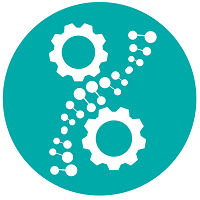Back
Manufacturing & Analytical Characterization – Biomolecular
Session: Symposium: Analytical and Predictive Approaches in Drug Development and Manufacturing (BM)
Design of Biopharmaceutical Formulations Accelerated by Machine Learning
Monday, October 17, 2022
9:30 AM – 10:00 AM ET
Location: 205 C

Harini Narayanan, MSc, PhD
Postdoctoral associate
MIT
Cambridge, Massachusetts
Speaker(s)
Artificial intelligence (AI) has entered already many business areas including biopharmaceutical drug product development. Many organizations apply AI tools from early drug discovery, during drug product development, clinical trials, and post market surveillance. Generally, AI is considered to accelerate processes and find correlations in large dataset and thus increase productivity.
During the development life cycle, in particular Chemical, Manufacturing, and Control (CMC), of biopharmaceutical drug products many opportunities exist for AI to improve experimental design. On the example of formulation development, current strategies such as one-factor-at-a-time (OFAT) and design of experiments (DOE) will be described. Next, advanced statistical tools and machine learning algorithms will be explained, which enable a rational, step-by-step formulation selection and stability prediction. By using those computational tools, the design space of formulations can be explored with less experiments compared to traditional approaches. Examples will be presented based on thermal and colloidal stability of therapeutic monoclonal antibodies (mAbs) after formulation optimization to demonstrate the novel technology.
During the development life cycle, in particular Chemical, Manufacturing, and Control (CMC), of biopharmaceutical drug products many opportunities exist for AI to improve experimental design. On the example of formulation development, current strategies such as one-factor-at-a-time (OFAT) and design of experiments (DOE) will be described. Next, advanced statistical tools and machine learning algorithms will be explained, which enable a rational, step-by-step formulation selection and stability prediction. By using those computational tools, the design space of formulations can be explored with less experiments compared to traditional approaches. Examples will be presented based on thermal and colloidal stability of therapeutic monoclonal antibodies (mAbs) after formulation optimization to demonstrate the novel technology.
Learning Objectives:
- Upon completion, participant will be able to explain current formulation development approaches using traditional design.
- Upon completion, participant will be able to describe how AI can optimize the design space of protein formulations.
- Upon completion, participant will be able to understand how time and material can be saved by computer-aided experimental design.

